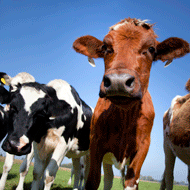RUMA update AMR action plan for livestock

RUMA have developed guidelines for the responsible use of antibiotics in dry cow management.
The Responsible Use of Medicines in Agriculture Alliance (RUMA) has revised its Antimicrobial Resistance (AMR) strategy action plan for the livestock sector.
Announcing the revision, RUMA secretary general John Fitzgerald said this version of the plan records the process made so far.
Progress includes improved biosecurity controls and work to enable the collection of better antimicrobial usage data for reporting to the VMD.
RUMA have also developed guidelines for the responsible use of antibiotics in dry cow management, and agreed to prepare a toolkit for trainers on the content of responsible use training. This will be made freely available once completed.
Responding to the launch of the UK Governments five year AMR strategy in September 2013, RUMA published an action plan for the livestock sector in April 2014.
When the plan was published, John Fitzgerald said that RUMA members had agreed to review and record progress against the plan at RUMA's quarterly meetings.
They also agreed to publish the plan and its subsequent revisions to provide an open report on how this work is developing.
The first revision is now available on the RUMA website: www.ruma.org.uk



 HMRC has invited feedback to its communications regarding the employment status of locum vets and vet nurses.
HMRC has invited feedback to its communications regarding the employment status of locum vets and vet nurses.